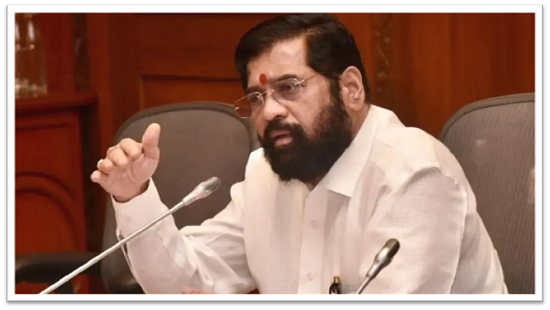
Maharashtra, West Bengal, and Ahmedabad Authorities Step Up to Ensure Safe Return of Stranded Tourists in Nepal
Crises abroad often test not only the resilience of individuals but also the responsiveness of governments. When citizens are stranded in unfamiliar territory, leadership is measured by the speed of communication, coordination of resources, and the reassurance provided to anxious families back home. The recent unrest in Nepal, triggered by protests that spiralled into widespread violence, has left nearly 150 tourists from Maharashtra and several others from different states stranded.
In such moments, the role of governance becomes more than administrative, it becomes deeply personal. Assurances from leaders in Maharashtra, West Bengal, and Gujarat have not only offered comfort but also reinforced confidence that systems are in place to bring every stranded citizen home safely. This balance of empathy and efficiency underscores how Indian states are stepping beyond borders to protect their people in times of uncertainty.
Rapid Response From Maharashtra
Deputy Chief Minister Eknath Shinde personally reached out to stranded tourists from Maharashtra, assuring them of safe return and necessary support. Such proactive engagement is significant, as it builds trust among citizens and signals that their government is not distant but directly involved in their well-being. For families anxiously waiting back home, this communication is as important as logistical arrangements.
West Bengal Extends Its Support
In parallel, West Bengal Chief Minister Mamata Banerjee emphasized that her administration is closely monitoring the situation and will facilitate the return of stranded citizens. Her public assurance not only offered comfort but also demonstrated how state governments can collaborate during international emergencies. In an interconnected world, regional leadership plays a vital role in protecting citizens, no matter where they are.
Ahmedabad’s Helpline: A Practical Step
The Ahmedabad District Administration went a step further by announcing a dedicated helpline number (079-27560511) for citizens currently in Nepal. By requesting relatives of travellers to inform authorities immediately, the administration ensured a two-way communication channel, a practical measure that enhances speed and accuracy in crisis response. This small but effective step highlights how local governance mechanisms can complement larger state and national-level initiatives.
Nepal’s Healthcare System Under Strain
The protests in Nepal, which began on September 8 following restrictions on social media platforms, escalated into widespread unrest. According to the Ministry of Health and Population, the protests have tragically claimed 30 lives, while 1,033 individuals sustained injuries. Remarkably, 713 have already been discharged after treatment, and 28 hospitals nationwide are engaged in providing care. Facilities such as the Civil Service Hospital in Kathmandu (436 patients) and the National Trauma Centre (161 patients) are leading the response.
Despite the strain, the rapid mobilization of Nepal’s healthcare network demonstrates resilience. The coordinated distribution of patients across hospitals prevented system collapse—a lesson in crisis preparedness for the region.
A Broader Perspective: Leadership in Action
While the protests in Nepal reflect deeper socio-political currents, India’s response reveals an important truth: in times of disruption, leadership is measured not only by control but by care. Ensuring safe passage for stranded citizens is not just a logistical task, it is a moral commitment. The combination of direct communication, monitoring, and practical assistance by Indian state leaders reinforces confidence in public institutions.
Critical Insights
Nearly 150 Maharashtra tourists continue to remain stranded in Nepal due to the ongoing protests, but the assurance of safe return from state leaders has provided a strong sense of relief to families back home. Maharashtra and West Bengal governments have demonstrated how direct communication and active monitoring can transform fear into reassurance.
Meanwhile, Ahmedabad’s initiative of launching a dedicated helpline for its residents highlights the value of grassroots governance during international crises. By creating a fast and reliable communication channel, the administration ensured that relatives of stranded travellers could access help immediately.
At the same time, Nepal’s healthcare system, supported by 28 hospitals treating victims, has managed to stabilize a surge of more than 1,000 injuries. The ability to discharge 713 patients quickly and distribute the remaining caseload across facilities underscores the resilience of local institutions in times of extraordinary stress.
Overall Reflection
The unrest in Nepal is a reminder that crises abroad quickly test the ability of governments to protect their citizens. The swift assurances from Maharashtra, West Bengal, and Ahmedabad show how responsive leadership and clear communication can turn anxiety into trust. For families waiting at home, this support is as important as the logistical steps to bring loved ones back safely.
At the same time, Nepal’s healthcare system, though under immense strain, has managed to stabilize over 1,000 injuries across 28 hospitals—an example of resilience under pressure. The broader lesson is clear: empathy, preparedness, and transparent communication are the true markers of effective governance. When these values guide action, crises can become stories of resilience and cooperation rather than despair.



